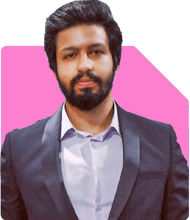Ramalingam Kalirajan |1280 Answers |Ask -Follow
Mutual Funds, Financial Planning Expert - Answered on Apr 18, 2024
He has an MBA in finance from the University of Madras and is a certified financial planner.
He is the director and chief financial planner at Holistic Investment, a Chennai-based firm that offers financial planning and wealth management advice.... more

Hi Sir, This is Murugan, from Chennai, working for an IT company. I have started to invest in NPS for the past 7 months (4216?, 10% of my basic salary) for my retirement plan. My take-home salary is ?60,000 (after NPS deduction). I don't have a debit. I would like to invest ?20,000 for my future and also for my child's (4-year-old) education purposes (long-term plan). Please suggest any ideas to achieve my goal. Thanks, Murugan.
SIP in Mutual Funds:
Allocate a portion of ?20,000 towards SIPs in mutual funds. Opt for diversified equity funds for long-term growth potential.
Choose funds based on your risk tolerance and investment horizon.
Child Education Fund:
Create a separate fund or invest in child education-specific mutual funds or SIPs for your child's education.
Start a recurring deposit or systematic investment plan (SIP) to accumulate the desired amount by the time your child starts higher education.
Emergency Fund:
Set aside a portion of your monthly income for an emergency fund, aiming to accumulate 3-6 months' worth of expenses.
Consider a liquid or short-term debt fund for this purpose.
Insurance:
Ensure you have adequate life and health insurance coverage for yourself and your family to protect against unforeseen events.
Review & Adjust:
Periodically review your investments to track performance and make necessary adjustments.
Increase your investments gradually as your income grows.
Remember to maintain a balanced approach between equity and debt investments based on your risk tolerance. Consult a financial advisor to create a personalized investment plan tailored to your financial goals and situation.
You may like to see similar questions and answers below
Sanjeev Govila |458 Answers |Ask -Follow
Financial Planner - Answered on Dec 25, 2023
Ramalingam Kalirajan |1280 Answers |Ask -Follow
Mutual Funds, Financial Planning Expert - Answered on Apr 27, 2024
Ramalingam Kalirajan |1280 Answers |Ask -Follow
Mutual Funds, Financial Planning Expert - Answered on Apr 02, 2024
Mohit Arora |42 Answers |Ask -Follow
Dating Coach - Answered on May 02, 2024
Sushil Sukhwani |330 Answers |Ask -Follow
Study Abroad Expert - Answered on May 02, 2024
Mohit Arora |42 Answers |Ask -Follow
Dating Coach - Answered on May 02, 2024
Mohit Arora |42 Answers |Ask -Follow
Dating Coach - Answered on May 02, 2024
Ramalingam Kalirajan |1280 Answers |Ask -Follow
Mutual Funds, Financial Planning Expert - Answered on May 02, 2024
Ramalingam Kalirajan |1280 Answers |Ask -Follow
Mutual Funds, Financial Planning Expert - Answered on May 02, 2024
Ramalingam Kalirajan |1280 Answers |Ask -Follow
Mutual Funds, Financial Planning Expert - Answered on May 02, 2024
Ramalingam Kalirajan |1280 Answers |Ask -Follow
Mutual Funds, Financial Planning Expert - Answered on May 02, 2024
Ramalingam Kalirajan |1280 Answers |Ask -Follow
Mutual Funds, Financial Planning Expert - Answered on May 02, 2024
Ramalingam Kalirajan |1280 Answers |Ask -Follow
Mutual Funds, Financial Planning Expert - Answered on May 02, 2024























